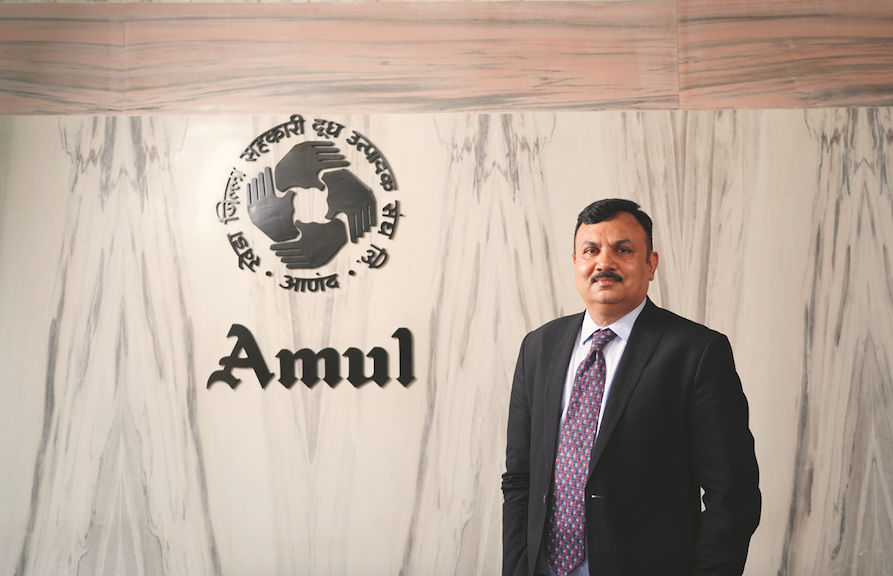
By creating a dairy herd that is genetically superior, tested, and able to produce twice as much milk at the same cost, Anand Milk Union Limited (AMUL) hopes to double the income of farmers in the next four years.
According to Amit Vyas, managing director of Amul Dairy, they are enhancing the breeds of dairy cows and buffaloes by using technologies like embryo transplant, sorted sex semen, and digital bands. To ensure high breed future generations as well, he said, "We are focusing on the genetics of our dairy herd and the high breed has proven bulls which will be used for fertilisation of embryo." He continued, "In the future, cattle will have high genetic quality, which will help them produce more milk and directly improve the standard of living for farmers."
The daily milk production of the typical cow has increased from four to seven or eight litres. Our main goal is to lower milk producers' production costs. Farmers used to focus on getting more cows to produce more milk, but now we've asked them to adopt these high-breed cows and new technologies to get the milk of 10 cows from just five cows, according to Amit Vyas. He continued by saying that they have undertaken specific initiatives, such as sorting sex semen and other technologies, to achieve this. To monitor the health of the animals and analyse their patterns, they have digitalized the entire Amul and even given them digital bands.
It was discovered earlier that bovines deliver more males than females. Additionally, more female calves are giving birth thanks to technology, which helps farmers make more money. Because it is much more affordable than allopathic treatment for cattle, he said, "we are developing homoeopathic and ayurvedic medicines for cows." In response to a question about how to boost farmers' income, Vyas stated: "Farmers' income can only be increased through cuts in expenses or by giving them technology at a low cost to double their income and improve their livelihood."
In describing the contribution of the dairy industry to Gujarat's GDP, Vyas noted that 20–25 percent of Gujarat's GDP comes from the agricultural sector. Vyas asserts that Amul's farmers are actually its true owners. "Throughout my 77-year journey, Amul has consistently prioritised farmers, made sure they have a good life, and shown them how to make good money from milk production. Sardar Vallabhbhai Patel had the goal of establishing connections in the market. According to him, there is no owner of Amul; rather, the 36 lakh farmers in Gujarat who work for the company are Amul's true owners.
Amul has the world's most cost-effective supply chain, which enables us to pay farmers more. In Amul, we give back about 85 paise of every rupee earned to the farmers; however, internationally, the rate of return for farmers is 33%," Amit Vyas said. Amul began operations in 1946 with 247 litres of milk on the first day. At the moment, Amul manages and processes roughly 3 crore litres of milk each day. According to Dr. Preeti Shukla, Amul's public relations officer, they are concentrating on increasing milk production using high-breed cattle that they have developed through a variety of interventions.
"We are using the sex-sorted semen method to perform artificial insemination (AI) to create high-breed cattle to boost milk production. With an accuracy rate of 87 percent in the field, we have carried out 2.73 lakh AI using the technology of sorted sexed semen, she said. She continued, "High breed calves created using embryo transfer technology will also be used for breeding."











